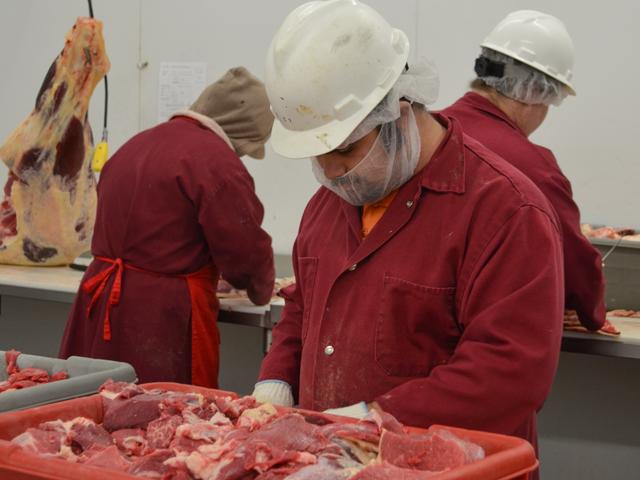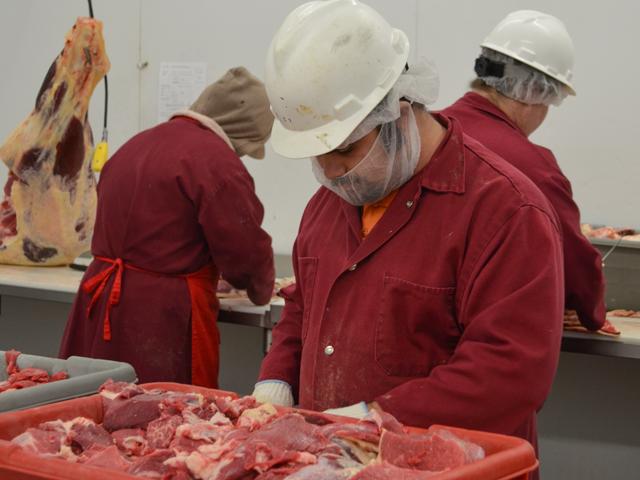Ag Policy Blog
USDA Tightens Guidelines for Animal-Raising Claims for Meat and Poultry Products
Livestock producers who raise animals for programs such as "raised without antibiotics" or "humanely-raised" branding efforts are could face more documentation and verification of their animal-husbandry efforts, as well as third-party audits following a USDA plan to tighten standards for making such claims.
USDA on Wednesday announced more scrutiny on meatpacker and retailer claims about how animals are raised, seeking more information that must be approved by the Food Safety and Inspection Service (FSIS) before labels can be added to meat and poultry products.
USDA pointed to claims such as "grass-fed" and "range-free," but a big chunk of the effort also will focus on claims such as "raised without antibiotics." FSIS and the Agricultural Research Service (ARS) will be conducting a sampling project to examine antibiotic residues in cattle heading for the "raised without antibiotics" market. The results of that sampling survey will lead to whether FSIS will require laboratory testing results to be included for the "raised without antibiotics" label or create a new verification program.
Labels declaring "raised with no antibiotics" can lead to significant price differences for retailers and consumers -- and not just for beef. A boneless chicken breast with no labeling claims is $3.99 for a major Midwest retailer, but a boneless chicken breast "raised with no antibiotics ever" goes for $6.99 a pound.
FSIS also will be issuing new guidelines to the packing plants to improve their documentation for the agency to verify animal-raising claims. FSIS also plans to "strongly encourage" packers to use third-party certification to verify these claims.
P[L1] D[0x0] M[300x250] OOP[F] ADUNIT[] T[]
The founder of the Antibiotic Resistance Action Center (ARAC) at the School of Public Health at George Washington University applauded USDA for re-examining how the department verifies animal-raising claims.
ARAC conducted a study published in April 2022 that tested nearly 700 cattle from 312 lots and 33 different 'raised without antibiotics' certified feedyards??. They found that 42% of the feedyards had at least one animal test positive. Lots with at least one positive test represented approximately 15% of the 'raised without antibiotics' cattle processed during the study period, the group stated. ARAC at that time called on USDA to tighten its standards.
"Consumers pay a premium when purchasing RWA (raised without antibiotics) products," said Lance Price, founder of ARAC. "They should get what they are paying for, and society as a whole should benefit from genuine reduction or elimination of antibiotic use in animal agriculture. Equally important, consumers should be able to trust in the USDA-verified claims on all meat and poultry products they buy, whether in the grocery store or online."
Price stressed that issue, pointing to the risks of antibiotic resistance as a public-health risk. He said drug use in food-animal product needs to be reduced to protect the use of those drugs in medicine.
Animal welfare groups that have petitioned USDA to tighten those claims, citing a lack of documentation to support what's on the package. Groups such as Friends of the Earth and the Animal Welfare Institute issued releases supporting FSIS's moves.
DTN reached out trade associations for meatpackers and the chicken industry, but did not receive any response.
In the appropriations debate Wednesday tied to USDA's budget, the FSIS budget included a note from the House Appropriations Committee that "the process for verifying animal-raising and sustainability claims on meat and poultry products labels has led to consumer confusion and allowed unfair practices to proliferate." The committee called on FSIS and the Agricultural Marketing Service to make sure the "process verified program" aligns with FSIS's guidance document.
Also see, "Walmart Taking Next Step to Develop End-to-End Supply Chain Strategy for Beef," https://www.dtnpf.com/…
Chris Clayton can be reached at Chris.Clayton@dtn.com
Follow him on Twitter @ChrisClaytonDTN
(c) Copyright 2023 DTN, LLC. All rights reserved.





Comments
To comment, please Log In or Join our Community .